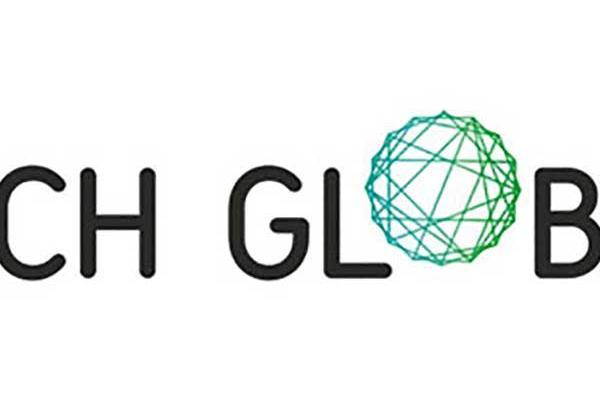Work-life balance. What does it even mean? And when you do come up with a definition that works for you, how do you overcome the challenges to achieving and maintaining it?
Technology and corporate culture has us connected 24/7. Do we need to always be “on” for work? A proposed California bill (AB 2751) would seemingly help employees to disconnect outside of working hours, but there’s a flipside that could lead to even less work-life balance for many, including families and those with other commitments that overlap with designated work hours. When a 40-hour work week looks more like 50-hours-plus, is there time left to actually include the “life” in the balance?
Ask yourself: When you leave—be it from your at-home desk or an office—for the day, do you find yourself checking work email at a late hour? Or worse yet, while you’re on vacation? While waiting for your favorite prime-time TV show to begin, do you rattle through a to-do list that awaits you tomorrow morning? While helping your children with their homework, are you thinking about your own business report that’s due tomorrow?
“When we can’t let go of work while we’re out of the office, we don’t get to enjoy the benefits of time away,” writes Harvard Business Review author Art Markman, Ph.D. “To wean yourself off work—and unwanted thoughts of work—you can use a combination of new habits and lessons from cognitive behavioral therapy.”
We all know that there are benefits of unplugging from work and focusing on self. You need to recharge so that you can be productive and successful at work. Being “in the moment” with family and friends produces strong relationships that will buffer you from work stress. In fact, the Mental Health America organization reports that “one in four Americans describe themselves as ‘super stressed.’ And that’s not balanced nor healthy.”
But what happens when you add going back to school to your already crowded schedule?
There are numerous resources at your disposal to ensure that you don’t go off-balance when taking a single course or a full certificate’s curriculum. Maintaining a healthy work-life-study balance can be challenging, but you can manage your time effectively and reduce stress. From creating a schedule to taking short breaks, these eight tips are not only helpful, but—more importantly—doable. Just ask our graduates.
1. Set clear goals.
Being able to define your priorities for work, study and personal life and having clear goals will help you allocate your time more efficiently. The first step might be acknowledging what you want to get out of furthering your education right now.
Lauren Jesse, an alumna of our Post-Baccalaureate Health Professions Program, gives this advice on understanding your academic goals: Do your research. For example, “If you are applying to P.A. school, look at requirements for schools that you are interested in to help guide you in which courses to take. Most importantly, make sure you have strong study habits in place before enrolling in a post-bacc. Schools will place these grades in high regard and use this as a measure of whether you are ready to handle the rigor of the curriculum.”
The same is true for deciding to pursue a certificate over a master’s degree.
“For me, why I chose your certificate is that I was able to do the program from home,” says Alis Vazquez, a Certificate Program in Clinical Research Conduct and Management graduate. “The overall program was perfect for me. I started it during the pandemic, and I was so motivated to complete the certificate. I could fit the courses into my work-life balance.”
You might even use what you are learning in your courses to help you plan out your educational and career goals, like Juan Resendes, one of our Certificate Program in Construction Management and Leadership graduates, did. “Creating a Gantt chart helped me tremendously to visualize the timeline of the courses that I need to take to complete the certificate and to make decisions about the classes I wanted to take.”
Whatever your priorities, remember your end goal is to be successful and to not lose yourself in the process.

“First: Never give up on your dreams. Second: The definition of insanity is doing the same thing over and over and hoping for a different result. UC Berkeley Extension’s post-bacc allowed me to make the changes that I needed to pursue a dream that I have had since I was six years old.”
—Jennifer Jacobsen, Post-Baccalaureate Health Professions Program
2. Create a schedule and prioritize tasks.
After you’ve set clear goals and defined your priorities, develop a schedule for them. Don’t forget that includes not only dedicated time for work and study, but also time for relaxation, exercise and social activities. (More on “me time” a little later.) Try to stick to this schedule as much as possible to establish a routine.
When you’re taking an online course, it’s important to create a schedule so that you don’t fall behind and stress yourself out. When you’re not expected to show up to class every Wednesday evening, it can be very easy to “postpone” your assignments to next week when your schedule looks a bit lighter.
Identify the most important tasks for each day and focus on completing them first. This will help you stay on track and avoid feeling overwhelmed by your workload.
Gina LaMothe, a Clinical Laboratory Scientist Preparatory Program graduate, says, “Take your time with your classes but make deadlines for yourself if you’re doing them online and self-paced. I was working with midwives at a birth center when the COVID shutdown happened, so my work schedule and responsibilities shifted quite a bit. Being able to do my classwork around my work schedule was a game-changer.”
Also, knowing all of your commitments in advance will help you allocate time to schoolwork and maintain that needed balance. Keep track of deadlines, assignments and appointments using a planner or digital calendar. Use phone apps with reminders at 1-week, 3-day and 1-day intervals to remind yourself of homework assignments. Check out more online tips.
You know you have to be at work by a certain time, so use that same concept when taking a class.
“It’s important to have a routine throughout the semester,” says UX Design graduate Lisa Jacquiot. “Going to class twice a week for three hours after work, and putting in 12 hours of homework per week can be hard when you have a full-time job and need a little bit of a social life. Be organized (set homework times) and keep a good routine (set exercise/relaxing times and go to bed early).”

“Organize your schedule, set clear study goals and stick to a consistent routine to manage your time.”
—Sheena Gaynes, Certificate Program in Marketing, on how to succeed in lifelong learning
Related: Fighting Procrastination When Taking an Online Course
3. Learn to say no. (Until you want to say yes.)
This may be one of the hardest things to do. If you say no to a new work project or assignment, are you passing up a great opportunity? But if you keep adding to your plate at work, will you have time to complete your studies—which can help you get a promotion or other career advancement? Decide what you’re willing to give up to make time for assignments. You can’t do it all!
It's okay to decline additional responsibilities or social invitations if they interfere with your work or study schedule. You don’t need to answer your phone, or check your work email or Slack, if it is after work hours and maybe even during a designated professional development time. Remember, setting boundaries is essential for maintaining balance.
But sometimes, those extra responsibilities are in line with your goals and what you ultimately want to achieve. Such as the case with Krist Mejia.
“We were initially outsourcing our digital marketing to an agency and I was the web designer,” says this Certificate Program in Marketing graduate. “When we stopped our contract with the agency, I was transitioned into a more digital marketing–focused role. I knew I could do it because I was taking my marketing courses.”
4. Reinforce and expand your support system.
In the same vein as “you can’t do it all,” rely on family and friends to help you out. Ask your partner or roommate to take on additional household responsibilities. Reach out to a friend to watch the kids for a few hours so that you can finish your project. Let your colleagues, classmates and family members know about your schedule and boundaries. Effective communication can help prevent misunderstandings and conflicts.
And remember, you’re taking classes with other folks who are also feeling the work-life-study balance pinch. Rely on each other for support—you’re going through the same experience and you never know what amazing tip you can get from a classmate.
As post-bacc health alumna Brhan Eskinder found herself chipping away at completing prerequisites at night while still teaching during the day, she also found a sense of community in each of her classes.
“They were spaces where you walked into the room and we all knew why we were there,” Brhan describes. “So there's a sense of collaboration, and the majority of the other students were also working during the day. It felt good to be with other working professionals because a lot of other post-bacc programs will put you in a class with undergrads.”
“I was joined in my Extension classes by friendly classmates who were excited to study and learn together, share our backgrounds and career goals, and support each other through the challenging and engaging content of the courses,” adds Jeremy Goodman, Clinical Laboratory Scientist Preparatory Program graduate. “I was able to identify and connect with some students specifically interested in the clinical laboratory. We shared knowledge about the application processes for various programs.”
Take advantage of the relationships that you can build with your instructors and peers.
“I have long struggled with anxiety surrounding social situations, which unfortunately hindered me from reaching out to professors and classmates when I was in undergrad,” says Emilie Biondi, who completed our Advanced Biosciences Program and whose personal experience can help others from becoming off balance while keeping their goals in mind. “For me, the Advanced Biosciences program wasn't just an opportunity to boost my GPA; it was also an opportunity to make the professional connections that I hadn't been able to previously.”
5. Don’t be afraid to ask for help.
It’s not just your classmates and colleagues with whom you need to communicate. Our instructors and staff, as well as your employer, also play important roles in helping you reach your goals.
If you need additional guidance on deciding priorities, seek out your employer’s human resources (HR) department to address your concerns or to get tools that can help you on your path. Workplace Employee Assistance Programs (EAP) “are designed to improve or maintain the productivity and healthy functioning of an employee, as well as assist with personal- or work-related concerns,” says instructor Dana Walsh, M.A., LMFT.
“There is a big drive these days for companies to have extensive work-life benefits and to promote wellness and balance; a crucial part of this is mental health, or emotional wellness. Many companies, in trying to attract and retain employees, want to meet these expectations. Having an EAP is a benefit both to the employer and the employee: Employees who are emotionally healthy and resilient can help keep workplaces safe and the company successful.”
Mark Love, a Certificate Program in Human Resource Management graduate, used his employer's program to grow in his career. “I loved my job and the field of employee and labor relations, but I wanted to enhance my knowledge of other human resources fields so that I could grow my career in a competitive environment,” he says. “I took advantage of [an employer's] reimbursement program and registered for the human resource management certificate because of the highly relevant curriculum.”
But it’s not just your HR department that can provide needed assistance to ensure you are on the right path and ease any uncertainty. In the case of Professional Sequence in Editing graduate Megan Rupert, she followed the advice of our instructors to network and build a peer group and attended webinars related to the field she wanted to be in. “Having those additional tools and making connections within those groups also really helped prepare me to make this a successful career,” she says.
According to post-bacc health alumna Charlotte Young, our program staff made the extra effort to keep students’ careers on track, especially during the height of the pandemic. Staff also contributed valuable advice on course load and schools that would showcase her strengths and more.
“I truly felt that my advisers gave customized advice that applied to my goals. For example, my adviser helped me decide the appropriate number of courses I should take each semester after assessing my other time commitments—work, studying for the MCAT and volunteering. I felt that there was a team of people behind me invested in my success.”
MJ Aguillon confides, “For about two years, I took one to two classes a semester while commuting an hour to and from work. I did struggle to stay focused during my evening classes, but my instructors were very understanding of my work schedule and accommodating to my learning speed and needs.”
Remember, advocating for yourself and your needs helps your connections be able to see where you are and meet you there.
6. Practice self-care and ALWAYS schedule in some “me time.”
Don’t feel like you’re being selfish by slotting in some time just for yourself. Make time for self-care activities such as exercise, meditation or hobbies that you enjoy. Taking care of your physical and mental health is crucial for maintaining balance.
You need to decompress, unplug and center yourself before jumping back into the Monday madness at work followed by the Monday evening spent reading or working on homework. Whether that’s scheduling every Sunday morning to read the paper or take a walk, just knowing that you’ve carved time out for yourself can be that week’s light at the end of the tunnel. You’ll look forward to that time.
Related: Mental Health Matters
Your self-care routine should include breaks when you are in the thick of a work project or homework assignment, or just after typing on your computer keyboard for an hour. Taking regular breaks is essential for productivity and mental well-being. This also means minimizing distractions such as social media, emails and phone calls while you're working or studying to help you stay focused.
Sheila Hallsted-Baumert—a Certificate Program in College Admissions and Career Planning graduate (now instructor!), independent educational consultant and podcast host—says her podcasting is her “me time.”
“One of the great pieces of advice I received from my mentor in this field was to take time away from the office. For me, that also meant a mental stepping back and reflecting. I thought my monthly musings might be a way to slow things down, take the time to really look around and perhaps give others a chance to think about the industry in a different way.”
Another healthy activity for “me time” might be community time. Giving back and volunteering brings its own rewards to our mental health and life balance.
As an associate director in clinical research, Cecilia Yu’s work-life balance means she also uses her project management skills to volunteer with Girls on the Run Bay Area (GOTR), an organization that means something to her. “I help increase awareness of the program by participating in a variety of strategic and fundraising initiatives to deepen the outreach of GOTR.”
Daniel Zakaria’s self-care incorporates his go-to sport, which acts as both a release and a personal development opportunity. “Playing a competitive team sport has taught me a lot about collaboration with others from different backgrounds. The game continues to teach me to persevere through challenging situations. I have found these types of skills to be directly transferable to a workplace setting, where we often work in teams to achieve incredible things.”
Sometimes self-care and “me time” means recognizing that you need to not only step back, but step away.
After Amber Lowi began taking some of our interior design courses, she needed to temporarily halt her student journey in order to achieve her work-life balance. “I took a few to start, had some life events that slowed my progress and then came back to finish the program,” she relates.
Maintaining your balance might mean you need to accept that your schedule may need to change due to unexpected events or emergencies. Stay adaptable and be willing to adjust your plans accordingly.
7. Make it relevant.
This is what clinical research certificate graduate Jennifer Brandl did to maintain that balance. “One of my classes was about regulatory documents, and at the same time, my boss had requested I go to one of our clinical trial sites and gather regulatory documents for the sponsor and site files,” she says. “Part of my homework was to create a regulatory document checklist. So for the class, I made the checklist; for work, I brought the checklist and did what I needed to do to gather the documents. I’m learning and implementing as the course goes, and that’s how you really retain what you’ve learned.”
Starting with small, aligned side projects can also bring the curriculum into personal focus—and help you test the waters.
“I started by offering free ‘light editing’ to friends for low-stakes projects they had at work, something an instructor essentially encouraged us to consider,” Megan Rupert says of her experience in the editing sequence. “That was really excellent advice. The exercises we were doing for coursework were very practical and relevant, but adding extracurricular practice with actual projects was really valuable not only for my confidence, but also for the scope of my experience. By the time I was done with the program, I was able to take myself more seriously with public-facing text and was much more prepared to bill for my services.”
Balance can also come from aligning your personal interest with your educational or career goals.
Marine Danielyan based her career change on something related to her previous field and that was close to her heart—marketing. “I started studying marketing, and at the same time got my first job in an introductory role as a marketing assistant. I worked with marketing, sales, product and customer-success teams, and assisted with growth and customer-facing initiatives. This really helped me learn new skills and define my future career.”
It was a personal connection to community-building that inspired Alex Guidici on his new career path in construction management and leadership. Instructor Miguel Galarza and his Preconstruction Estimating: From the Design Development Stage to the Final Bid Process course impressed Alex and had him seeing his career shift and its potential path in a new light.
“I learned something much larger from Miguel,” Alex lauds, “something zoomed out from my construction career: How our jobs relate to our communities. His lesson plans were full of real-life construction stories around the Bay Area having an impact. From housing elements to environmental protection, labor laws and homelessness, I was captivated to hear about how people were using their construction jobs to elevate our communities.”
When you maintain a work-life-study balance by engaging in any one or more of these tips, you’re also motivated to stay on the path to a successful and fulfilling career. Which brings us to our final piece of advice …
8. Celebrate your commitment!
Investing in your education is an extremely rewarding experience. Remember that achieving a work-life-study balance is an ongoing process, and it may require some trial and error to find what works best for you. When you’ve finished your studies, you’ll have a new set of skills and experiences that will propel you forward in your career.
So be patient with yourself and celebrate your accomplishments along the way. And when it all feels like too much, just breathe.
“Completing your program meant overcoming a huge hurdle for me,” relates Gina LaMothe of her CLS prep program accomplishment. “I have always struggled with school and being able to complete all the courses gave me the confidence that I needed to enter the Providence Sacred Heart School of Medical Laboratory Science (PSHMC MLS) program and feel like I deserved to be there.”
For Krist Mejia, the completion of the Certificate Program in Marketing symbolizes his success and deserves to be showcased. “I have the certificate right here on my shelf as a reminder that I have achieved this and nobody can take that away.”
“I am proud of my achievement and the foundation I have established for a long and successful career in the clinical laboratory,” says Jeremy Goodman. “I have finally found a career path that meaningfully contributes to health care, while also providing me the stimulation and potential for development and growth that I was searching for.”
And for Elaine Chan, a college admissions and career planning certificate graduate, it all comes back around: “Helping students through their college planning process has been a full-circle experience in coming back to my initial desire to be in a helping profession.”
Work-life-study balance can be achieved; it doesn’t have to be elusive. And that is a reason to celebrate.
Inhale. Exhale. Repeat.
Then get back to it because it’s worth it.

“The only way out is through. You're here for a reason. Show up every day and do what you need to do. No matter what anybody tells you, figure it out, hustle hard and make it happen.”
—Brhan Eskinder, Post-Baccalaureate Health Professions Program



